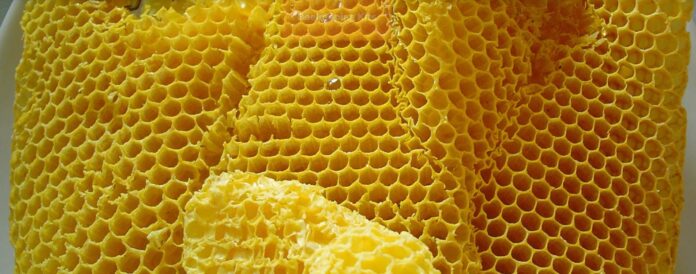In recent years, there has been a growing interest in sustainable materials, and one such material that has gained significant attention is beeswax. Derived from bees as a byproduct of honey-making, beeswax is a versatile and sustainable material that has numerous eco-friendly uses in the home.
Australia is a significant producer of honey, with a share of national production estimated at 44% based in New South Wales in 2019. This has made beeswax a readily available and popular choice for those prioritizing sustainability, offering a range of uses from skin care to food care with beeswax wrap in Australia.
The following points will explore some of the sustainable uses of this wondrous material.
Cosmetics and Skincare
Derived from bees, beeswax is a natural material frequently used in cosmetic and skincare products because of its excellent moisturising and soothing properties. Many creams, lip balms, lotions, and other skincare products contain this ingredient. Its emollient properties are highly effective in keeping the skin soft and supple.
Beeswax also has antibacterial properties that help protect the skin from harmful bacteria. These properties make it an excellent ingredient for natural skincare products. By using natural skin care products containing this ingredient, you can rest assured that you care for your skin naturally and sustainably.
Candles
Candles made from natural beeswax are a more eco-friendly choice compared to traditional paraffin wax candles. They are non-toxic and emit a pleasant honey-scented fragrance when lit. Additionally, beeswax candles have a longer burn time, making them a more cost-effective option in the long run.
By choosing beeswax candles, you are not only making a sustainable choice but also creating a warm and cosy ambience in your home. The honey-scented fragrance of beeswax candles can help create a relaxing atmosphere, perfect for unwinding after a long day.
Food Storage
Using natural materials to store food is a sustainable option that has become increasingly popular in recent years. One such material derived from bees is beeswax wrap. You can now get beeswax wrap in Australia and use it for covering bowls and containers and even to wrap food. They are made by infusing a cotton fabric with melted beeswax, often combined with other natural materials such as jojoba oil and tree resin, to create a pliable and reusable wrap. This coating creates a waterproof barrier that helps to preserve the freshness of food while also allowing it to breathe.
Wood Care
Beeswax can be used to care for and protect wooden surfaces. Beeswax polish is a natural and effective way to protect and nourish wooden furniture, cutting boards, and other wooden items. It can be made by melting beeswax and mixing it with a natural oil such as olive or coconut. Beeswax polish helps protect the wood from moisture and gives it a beautiful shine.
Textile Care
Beeswax can also be used to waterproof and protect fabrics such as canvas, cotton, and denim. By melting the beeswax and applying it to the fabric, it creates a barrier that repels water and dirt. This is particularly useful for outdoor clothing and equipment such as tents and backpacks.
Beeswax is a versatile and sustainable material that offers many eco-friendly uses for the home. By using beeswax products, we can reduce our reliance on synthetic and non-renewable materials, contributing to a more sustainable future. Whether you’re making your own skincare products, candles, or food wraps, beeswax is a valuable and versatile material that can help make our lives more sustainable. It is a natural alternative that benefits us and supports the environment.


